4v291o
now i feel very whimsical
]]>
This was only a short film, but it powerfully encapsulates the repressive environment of boarding school, where children are subjected to such strict discipline that it breeds rigidity and stifles any form of self-expression. Yet, what resonates most is the quiet rebellion of these kids, their determination to fight for what “freedom” means to them, however small or symbolic.
]]>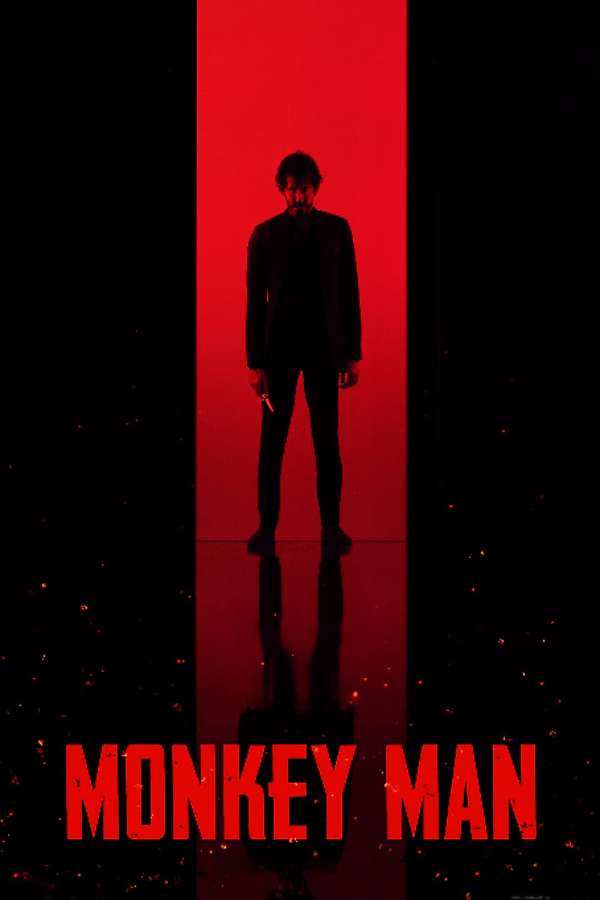
I only have limited knowledge of Indian culture, so bear with me. But if you do understand the culture, the experience of this film becomes even more powerful.
The myth of Hanuman reaching for the mango but grabbing the Sun — and being punished by the Gods — serves as a mythic echo in the film. Here, Kid reaches out for his Mother, who is on fire, and instead of divine punishment, he is consumed by his own internal rage and repressed trauma.
Roots are a recurring and potent symbol. They run deep into the Earth and are shown being worshipped by the Hijra community in the forest temple. This is significant, as the Hijra among the world’s oldest recognized third-gender communities, embody the tension between sacredness and social persecution. They are revered in rituals yet marginalized in society, much like the symbolic "roots" of the country itself.
Similarly, the image of the monkey becomes a degraded symbol. In the ring, the announcer demeans it, asking Kid to make the "monkey" lose, evoking both racialized tropes and the erasure of sacred meaning. The monkey, originally associated with Hanuman, a revered deity and protector in the Ramayana, is reduced to a spectacle.
The Mother appears laughing among the roots, reminiscent of Mata, a term for Mother India. Her being set on fire can be interpreted as a metaphor for the destruction caused by India’s unchecked modernization, greed, and moral erosion. Rana, the antagonist, seems like a modern incarnation of Ravana, the demon king from the Ramayana — even their names echo each other.
When Kid falls into the river after being shot, the murky filth around him contrasts sharply with the pure, clean forest spring, a direct commentary on the polluted holy rivers like the Ganges, once sacred, now tainted. It's a critique of environmental and spiritual degradation.
The duality of Devotion and Destruction embodied in both Shiva and the Hijra is central. It becomes the key for Kid to confront his past. His journey into a hallucinatory, buried memory is symbolic of diving into cultural and emotional roots that have been repressed or erased.
Ultimately, the film argues that divinity, the true Gods lie deep within the roots of Indian culture, beneath the layers of colonial residue, political corruption, modern violence, and institutional decay. And by returning to these roots, however painful, redemption is possible.
This comes full circle when Kid dips the monkey mask, originally black, perhaps evoking not just an ordinary monkey but also racist caricatures like King Kong, into bleach. Bleach, a modern chemical associated with sanitation and harm, becomes fire and transformation. The mask turns white, the traditional color of Hanuman-Ji, who helped defeat Ravana. It's a ritual cleansing, a reclaiming of heritage through fire, pain, and purity.
There's so much more to unpack, especially for those familiar with the Ramayana — the epic tale of Rama, Sita, Ravana, and Hanuman. The film becomes not just a narrative but a cultural invocation. It’s truly something remarkable. With that said, I desperately need Dev Patel.
]]>
terrifying, intriguing, boring, confusing, fascinating, banal, awe-inspiring, heartbreaking, and haunting
y’all are so not prepared for my personality when I finally understand this film
]]>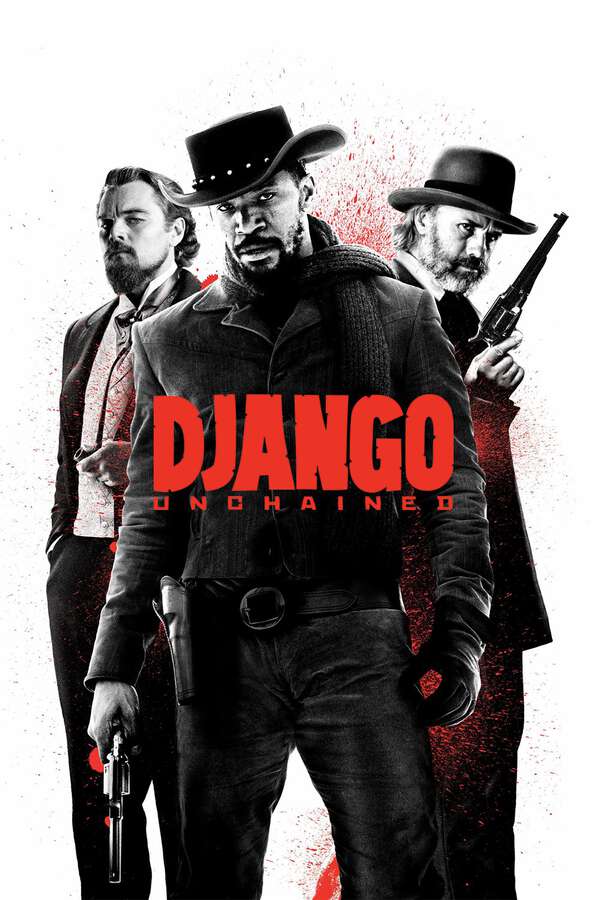
This review may contain spoilers.
I had fun watching this film. It’s stylish, funny, and the characters are engaging on a surface level. But once you dig a little deeper, it starts to fall apart. It seems like Tarantino chose slavery as the setting mostly because it would generate attention, much like how Inglorious Basterds tackled WWII. In both cases, it’s less about the actual history and more about giving him an excuse to craft a revenge fantasy in a provocative context.
Django is an interesting figure, but mainly because he’s a free Black man in the Deep South. That alone is a powerful concept, yet Tarantino barely scratches the surface. Django quickly shifts from a timid man to a fearless gunslinger, and there’s no real development; it just happens. It’s hard to buy into that kind of transformation, especially given the time and place. And sure, the film isn’t aiming for realism, but that’s kind of the issue: the tone constantly shifts between cartoonish violence and serious historical horror. One minute it’s pulp, the next it’s gut-wrenching brutality. It doesn't mesh well. Also, I couldn’t stop thinking about how implausible it is that Django and Schultz can act so brazenly without immediate consequence. In a society where enslaved people were treated as property, you’d expect them to be killed on the spot, and no one would bat an eye. That kind of disbelief pulls me out of the film.
What I really wanted was either a fully committed exploitation flick with no pretense of historical commentary or a real exploration of slavery that gave the subject the depth and weight it deserves. Instead, Django lands in this awkward in-between. It flirts with serious themes but ultimately focuses on spectacle and revenge. As a piece of entertainment, it works especially if you view it strictly as a dark comedy. But when people try to frame it as a serious commentary on slavery, that doesn’t hold up. The violence is shocking, yes, but it doesn't say anything new. If anything, it just reiterates what we already know: slavery was horrific. That’s not a revelation.
And I don’t buy the idea that this film has sparked meaningful conversations about slavery. From what I’ve seen, people are mostly talking about how intense or “cool” certain scenes were. If the goal was to provoke deeper thought about the history of slavery, it missed the mark. In the end, Django Unchained is entertaining, but hollow. It uses a heavy subject as a backdrop without the nuance or respect that subject deserves, and that undermines everything it could have been.
]]>
The idea that Mrs. Robinson didn't want them together, as she knew their young love wouldn't last, seems wrong to me. After all, forcing Elaine to marry Carl was likely worse, and with just as much, probably more uncertainty. She didn't love him much, and I doubt they knew each other for very long (after all, she only got together with him after Ben). Forcibly marrying Elaine off seems a disturbing parallel to the marriage she had been forced into. Thus, this miserable cycle of meaninglessness and lack of connection was being perpetuated by Mrs. Robinson, perhaps because she didn't know or understand any better alternative.
In this context, the end can be seen as a great "fuck you" to that mindset, instead representing a new, frightening but ultimately different way of living. Bena nd Elaine's expressions at the end are less a realization of how wrong they were, and more an understanding that it's up to them now, and they can likely depend on no one.
I think that it's just wrong to write the ending off as them realising that it won't work or that they've made a mistake. It's more about them realising that this hasn't fixed their problems, and realising that the fears they have had this entire time of just moving onto their next stage in life are still very much there, and if anything, they are even more uncertain and afraid now than they ever were. But, in my eyes, that's the only way to live life. And I think this is the point the film is trying to make. It's easy to live a dull, miserable life, where the only things that bring these people any semblance of happiness are their possessions, if even that. But it's much more difficult, and much more unnerving, and quite a bit crazy to do what truly makes you happy in life.
Ben never left the womb until he “graduated” from college. This film represents cutting the umbilical cord of living life within the confines of the theoretical (school) and into the practical (adding actual value to society). As such, further insulation only prolongs one’s growth.
]]>
This review may contain spoilers.
"Birdman or (The Crippling Insecurities of an Artist)"
I see it now—how every struggle of his held meaning. Each conversation, each wound and trial, was a quiet elegy, a living critique of the films, the art, the culture of our time.
What should a great talent do? Give the audience what they want? Be your whole life seeking everyone´s approval? Being satisfied with what you already got is to be a loser? Losing your wife, your daughter, your family, should be less important than not having a successful career? What does it mean to be successful?
It´s crazy to think how he was always with the theater full, he always had a great audience, he was constantly recognized by his audience in the street, in my point of view, he was not a failure at all. He was a good professional, a very good artist, who was living off his art? Wasn´t that enough? Why? When is it going to be enough? Why did he have to put himself down all the time? It´s crazy. To go into his head and see the world the way he saw it is so depressing. He was so much better than he thought, but he would never give himself credit. His selfishness and his greed made him lose his wife, his daughter, and most especially himself. He created in his mind a world that was not worthy of living in. To make it valuable, he had to kill himself.
And that´s the problem of living a crazy world inside of your head, lost in other people´s expectations and poisoned by your ambitions and ungratefulness of someone who is not thankful for what he has or has achieved, and gets drawn into his own miserable world. It all makes sense with the phrase from the beginning of the film - a thing is a thing, not what is said of that thing. We ought to be careful with our thoughts, with the modern world that is constantly searching for likes, followers, popularity, and suddenly nothing seems real anymore. If we ought to search for something in this life, it has to be the search for reality, the search for truth.
Reality, success, truth, is in ourselves, in our family - having the love of our family and having the respect and iration of our children and wife should be good enough for us. Doing the best we can should be enough for us. Not being loved, liked, followed, or ired by people who don´t even know us should never be considered as not having success. Real success in life is much deeper and simpler than that.
As for the ending, I saw the ending much more cynically than you explore here. On opening night, Riggan gives in to his fears and insecurity by attempting suicide instead of following through on this project. He gives into Birdman, the voice of cynical commercial success that doesn't give a shit about art or believe in this play. In response, he gets what he gave up when he bailed on Birdman 3 - fame, iration, he becomes the sensation of the moment, not for his art, but for his stunt. The cost is his art - with him injured, the show would have to be cancelled. With his new nose, he literally wakes up as Birdman, what he had been running from and fighting for so long. His flying was always a part of his Birdman persona and happens at his lowest point in the story and so his flying at the end could be seen as leaving the theater behind along with the petty humans we've seen him with in the film to launch back into shallow superstardom, living above the rest of the world in his own ego bubble.
However, though, Birdman says "bye-bye... fuck you" to him as he leaves the toilet. This signifies a departure and that he's grown beyond his alter-ego (the manifestations of his need for success, his fear of his own aspirations, as well as his self-doubt and ego). Personally, I see the end in a metaphorical way (the cut signifies that the same rules regarding the objective and subjective are no longer in play). He rewrites his career and repairs the relationships with his wife and daughter. In the final shot, Sam doesn't see him fly but instead sees him soar (without Birdman), as a human being, father, and artist.
It's such a unique experience! to put an emotion such as the ego and portray how it goes about in our daily life, through the ongoing communication we have with ourselves, and the world. To be able to put onscreen the ongoing mind battles humans have, I mean, what a clever and unique film this was.
The ending really solidified the film for me because there are so many ways to interpret it, strikingly beautiful and completely morbid. I felt closure and affection for the lunacy of the act and relief to see the daughter look up, then anguish at the literal implication of hereditary madness.
]]>
This review may contain spoilers.
I think it is a great film, dark throughout, but not "creepy" dark, which gives it a brooding sense of reality. Snow and darkness always seem to reel me in. Great acting from Daniel, but most importantly from Rooney, who by the way was just so visceral, and the detail therein, with unexpected flourishes of intensity where you root for and forgive the protagonists for being human as they wind their way through their intriguing stories.
This film plunges straight into the darkest depths of the human heart and rarely looks back. It’s unafraid to closely examine how utterly depraved some people can be. As such, I cannot readily recommend the film to just anyone. The rape scene that occurs a ways into the film is one of the most upsetting things I’ve seen in a mainstream film. It’s graphic, shocking (though not exploitative or pornographic), and it left me numb afterward with my palms sweaty. Later on, Lisbeth gets her revenge on her aggressor in a scene which is almost more horrific than what had been done to her.
The central theme of this series (originally titled Men Who Hate Women) is violence against women. If there is anything good to be said about these scenes, it is that they are finished by the halfway point. But unless you have a steel will and a remarkably strong stomach, this film will unsettle you deeply, from the startling content to the very uneasy tension that permeates the entire film.
As a character study, however, the film is outstanding. Every little element of the production is, in fact, outstanding. David Fincher has assembled a desperately tense mystery thriller that is at times almost unfairly enthralling. It commands every second of attention, and it does not pull a single punch with content. It’s a dark and unflinching look into the most depraved parts of human nature, a forbidden slice of dark cinema. Many times during the film, I wanted to crawl into my own skin and hide from the evil on the screen. It’s not an easy film to watch, and it’s certainly not fun. But as I believe, a film that gets to you so profoundly is a feat of filmmaking unto itself, and there is no denying that Fincher’s vision of the popular novel is a fine piece of craftsmanship, no matter how much you might want to look away.
]]>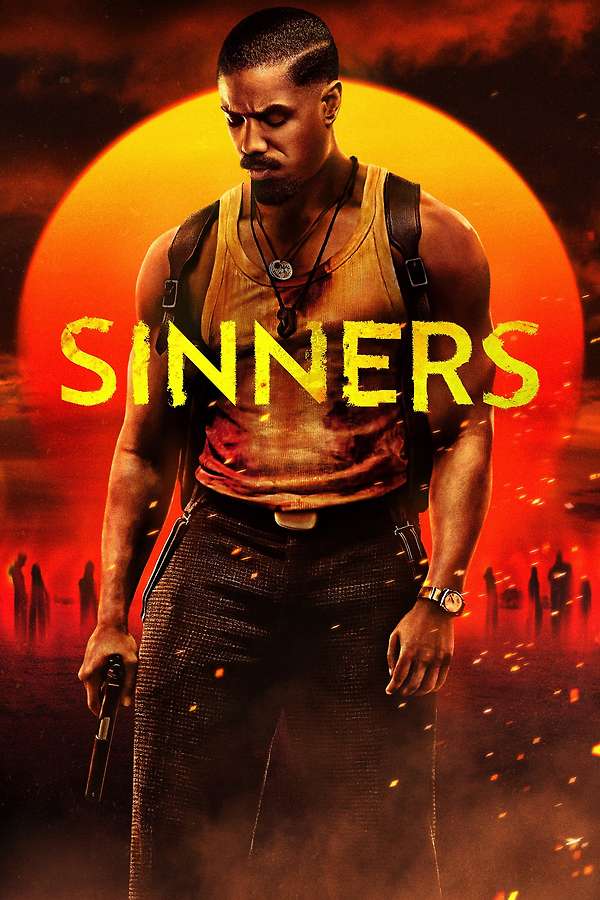
"Know your History; recognize the value of your History, and preserve your History." - Delroy Lindo (Delta Slim)
Coogler makes it a point to acknowledge that he follows history and is respectful of the cultures he incorporates into his art.
Remmick hints at being from a time when Catholics first came to Ireland and English colonizers forced their way and stole their lands. He held gold that seemed Roman-Celtic era. I notice Remmick is never portrayed as the racist white supremacist. He never uses slurs, and is eager to find commune with people, as once they become like him, they become a hive. Though, of course, more than anything, he wants to be with and see his people again, which is why he takes an interest in Sammie. Music that’s true and powerful is magical. I also perceived Remmick to be driven by a distorted sense of solidarity, as opposed to control.
Remmick calls the vampire hunters chasing him by their tribe name: Choctaw. This is a sign of actual respect and knowledge, as any other would just say Indian or a racist slur. When the Irish famine happened (and capitalists screwed over supply in Ireland) the Choctaw learned of what was happening in Ireland. Despite their own struggles with settler-colonization, they gathered what money they could and sent it as a gift to Ireland. Remmick understands oppression and colonization, but his form of solidarity is violence and more oppression. If you notice the times when solidarity is positively portrayed are those real human and communal moments among people forming real solidarity.
There’s a lot that can be read as cultural assimilation and appropriation in the film’s portrayal of Vampirism. They don’t just feed on blood, but on identity and culture. And a longing for community. This is not a movie, it is a letter that embodies one's understanding of self, culture, iration of individualism, and fear of cultural absorption! This film was just so fantastic, and Coogler continues to be a force in the industry.
I watch this film wanting more. Not because it wasn't good, but because it was so momentous and excellent, my mind went to a million places. Ryan Coogler could have made the entire film a 4-hour film, and I would have loved every minute of it.
]]>
This truly put a smile on my face. I have so much iration for Scorsese's ion for filmmaking and the ensemble cast's love and also ion for cinema.
]]>
Pacino, DeNiro, Pesci, and Scorsese. 4 of the most iconic figures in the history of cinema. These individuals have given us countless legendary films, performances, characters, and more. Hollywood and film wouldn’t be the same without these 4 powerful people.
]]>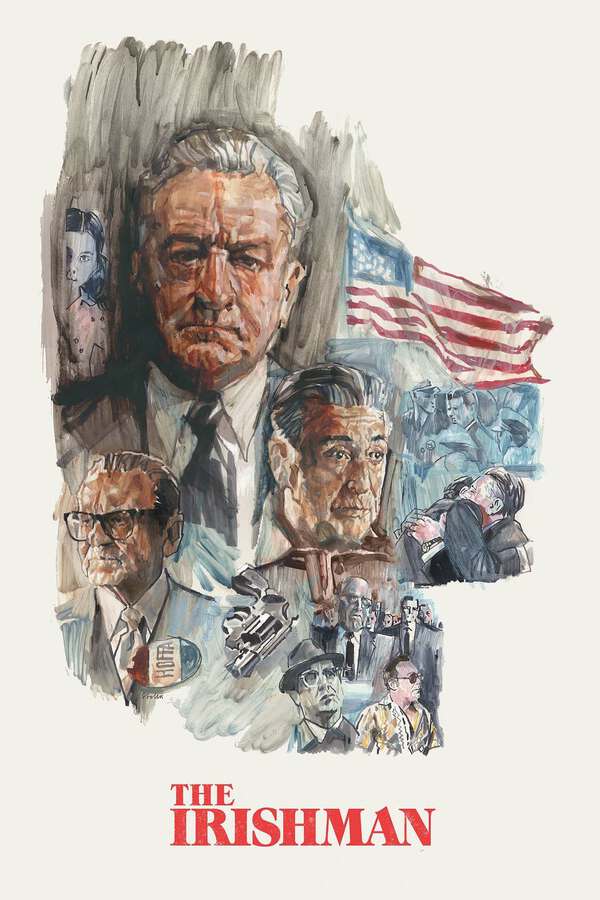
This film isn't frantic, nor is it a spectacle of chaos. It doesn’t even take place in New York. Instead, the mob here operates in Scranton, and while people do get killed and restaurant sit-downs are plentiful, much of what unfolds feels more like bureaucratic tension than cinematic bloodshed. It’s corporate conflict resolution with higher stakes. When things go south, “termination” takes a much more final form.
The film carries itself with a quiet, unhurried dignity. Its stillness gives it space to explore the dull, procedural side of organized crime. It’s not about flashy nights in Vegas or living large; it’s about negotiating loans from unions and plotting out real estate ventures like golf courses. It’s long drives that lead nowhere in particular. It’s about wearing the mask of a hero when, in truth, you’re a monster to those who see clearly.
New characters and real-life figures from the mob world are introduced, accompanied by brief notes about their inevitable fates. Most are shot. Some die of illness. Meanwhile, we watch Frank Sheeran age. In one moment, late in the film, he collapses in a hallway, his leg giving out, leaving him just another old man alone, trying to rise. Once, he was “somebody.” Now, he’s barely a memory.
This film strips away the romantic sheen that decades of mob movies have layered on organized crime. It dismantles the illusion of honor, code, and brotherhood. In the end, these men aren’t legends, they’re just guys scrapping over cash and pride, too proud to deescalate without blood. It’s a quiet but brutal takedown of the myth, revealing that their influence was fleeting, their legacy hollow. Frank is left with nothing but time and a slow fade into obscurity. One more soul trying, and failing, to leave a mark.
you actually go through all that craziness and violence and glory and live to tell the tale. But at what cost?
]]>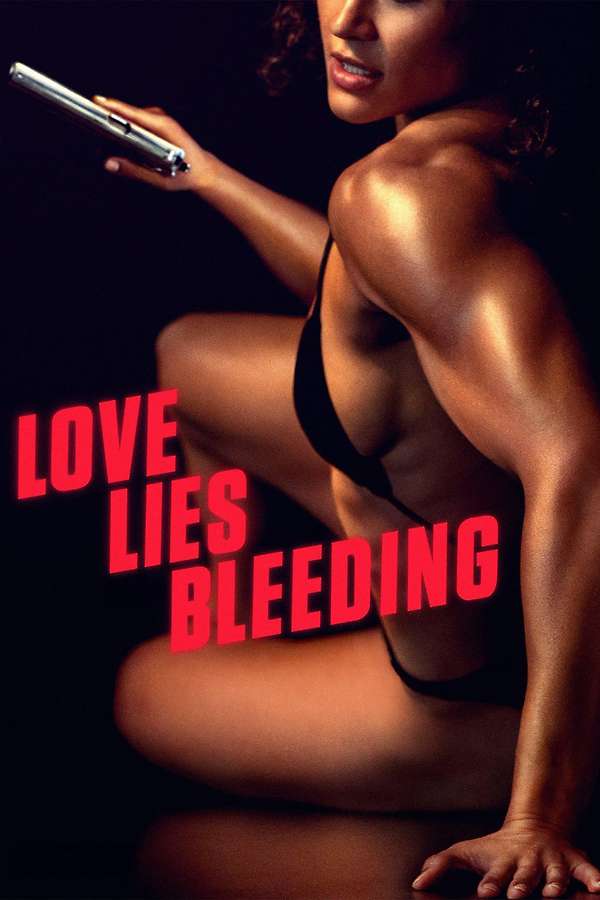
Starts out as a pretty standard potboiler neo-noir, but then gets increasingly bonkers towards the end. The film moves to its climax that had a development that had me mimicking Kristen Stewart's 'huh?!' And by the time the credits rolled, I was just in disbelief and laughing because what in the actual fuck happened in the last 10 minutes of the film?
]]>
This review may contain spoilers.
"People without empathy are more likely to succeed in business. Hate festers over time and fully consumes those who hate. Power can be a means to an end for some (Daniel), and it can be an end in itself for others (Eli)".
Something I want to note is that right before the “I drink your milkshake” scene happens, we see Daniel harshly disown his deaf son. I think this also really plays into the milkshake scene and explains Daniel’s hangover in the scene because, in actuality, he loved his son despite what he may have told him. I think it shows his torn nature and that he is a very broken man, even though he got all the riches he could ever want, and the milkshake scene acts as a final culmination of all his vices, hence the “I’m finished!”
“You’re a bastard from a basket!” One of the cruelest lines in all of cinema. It makes Daniel’s fatal beating of Eli seem almost merciful by comparison. His son represented the last piece of humanity in him. In the end he is alone in his mansion which just like him is large and empty. Yet, my take on this also was not that he discarded H.W. when he was no longer useful, it was instead his deep distrust of other people and the profound disappointment he has with others and perhaps himself for cultivating this distrust that led him to reject his adoptive son when the son, in Plainview’s view at least, sided with his competitors. In his talks with his phoney brother you could see his deep yearning for someone he could really relate to, who he though was now realised through the appearance of family: a brother. That betrayal perhaps destroyed the last semblance of hope we might have had that Plainview might unconditionally love and trust his adoptive son. Like the imposter brother, in the end to Plainview the adoptive son became nothing but another betraying and untrustworthy outsider: a bastard in a basket.
Also, the part where Plainview stamps forward shouting "I am the Third Revelation!" hit me hard; the camera angle to make him look bigger, combined with that disted movement and the religious language made me feel like I was watching the Rough Beast or Great Red Dragon or some other biblical monster beginning a rampage and it genuinely shocked me. Immediately afterwards, I was trying to work out how it managed to be scary rather than comical; on paper, there is absolutely no way that should come across as anything other than ridiculous, but Lewis pulled it off both in the moment and in the hours-long build-up to it. It drives home how a physically unremarkable human becomes truly terrifying when they've got no restraints whatsoever, and you completely understand why Eli flees in terror, even though rationally, he'd have had a decent chance at winning a fight with a substantially older addict with a hangover.
It’s a towering western—gothic Americana at its most unflinching. A searing allegory of capitalism and faith, and easily one of the defining films of this century. Flawless. Monumental. A perfect film. And I'm finding myself writing all of this and still feeling I haven't praised it enough.
What I’m saying is: if you haven’t watched There Will Be Blood, do it—immediately. And watch it with reverence. Turn off your phone. Watch in complete darkness. And make sure to make your volume high enough that Jonny Greenwood's opening discordant violins are strong enough to unsettle you in your seat. It's a feeling you'll have to get used to.
]]>
"When my eyes are closed, I see you for what you really are - which is OOOOGGGLLAAAYYYY!"
]]>
Very thoughtful and intelligent biopic about an unsung hero.
It's particularly an intense film that tells a great story, but some will either respect and understand or completely ignore its great themes. Benedict Cumberbatch is a brilliant actor and gives an incredible performance, one that focuses on Turing's genius and his struggles as a homosexual when, at any second, the wrong person could find out and arrest him. Keira Knightley also came out of nowhere with a great performance.
Alan Turing contributed immensely to the Allied victory, was crucial to the foundation of computer science, and it's just so awful to see things end up for him the way they did. It may have its inaccuracies like every biopic, but I hope people respect the themes and at least appreciate the great things this man did for the modern world.
]]>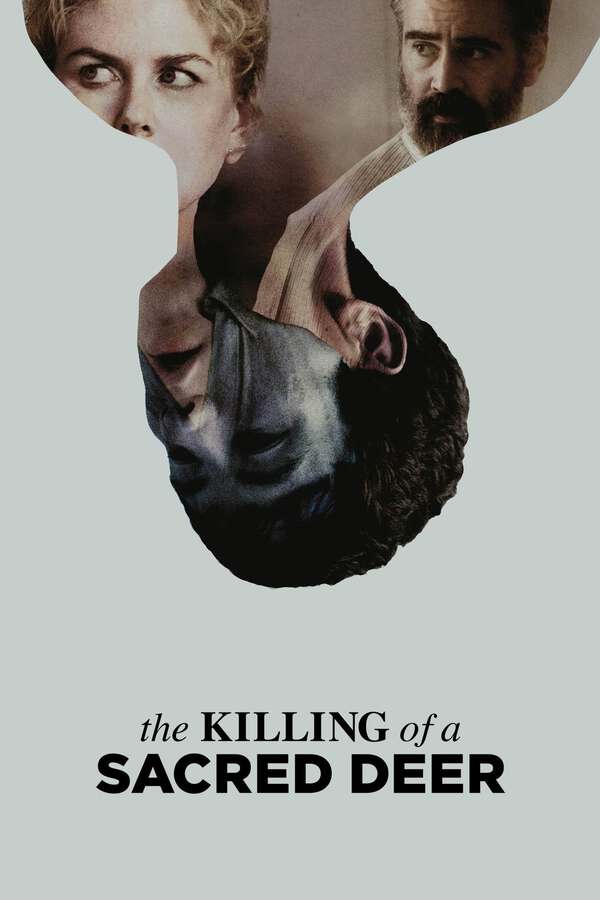
This review may contain spoilers.
Mythology formed the basis of the story in the way Greek myths, tragic heroes, and central themes of hubris inform so many films in Western culture. One central theme is where humans live on the spectrum of morality.
I see both Steven and Martin as both victims and killers, Gods and men. How far will Martin go to exact revenge for his father's death at the hands of a skilled but highly flawed surgeon? His moral code demands it. Can Steven set aside his guilt to protect his family by willingly killing another human being? His morality prevents it, yet he commits the most immoral act possible by sacrificing his son. Or, like Abraham, who sacrificed his son Isaac to appease his God, did Steven make the only choice possible?
I think the real beauty of highly symbolic films is that everyone can resonate with different aspects and themes based on their own experiences.
For me, the notions of the patriarchy accepting its responsibilities and dealing with consequences echoed throughout this film. None of the adult men (patriarchs) takes responsibility for their mistakes/ ineffectuality. They're concerned with their ego and with appearing faultless. But they're failing against the younger generations who are deeply resentful towards them. If they don't pay for their mistakes, they'll lose everything.
Also, the God/ Jesus symbolism is interesting - Bob is the "son" who dies for our sins - or for his father's sins in this case. Martin of course also has Jesus-like qualities - he has powers to heal, his feet get kissed as he bleeds and suffers, he's bearing the cross of his grief. Steven to me isn't God - he's Pontius Pilate, attempting to wash his hands from the responsibility.
And as for Martin biting his arm, I didn't see him biting his arm as him mocking justice, but rather ham-fistedly explaining the concept of "an eye for an eye". Martin obviously has a very black and white view of justice, considering how he chooses to punish Steven. The lack of nuance, while reflective of the story it draws inspiration from, is kind of dumb on a human, multifaceted level, where many decisions are often grey. He is a petty, childish, and vengeful God who becomes irate as soon as he is no longer being given trinkets and submission.
]]>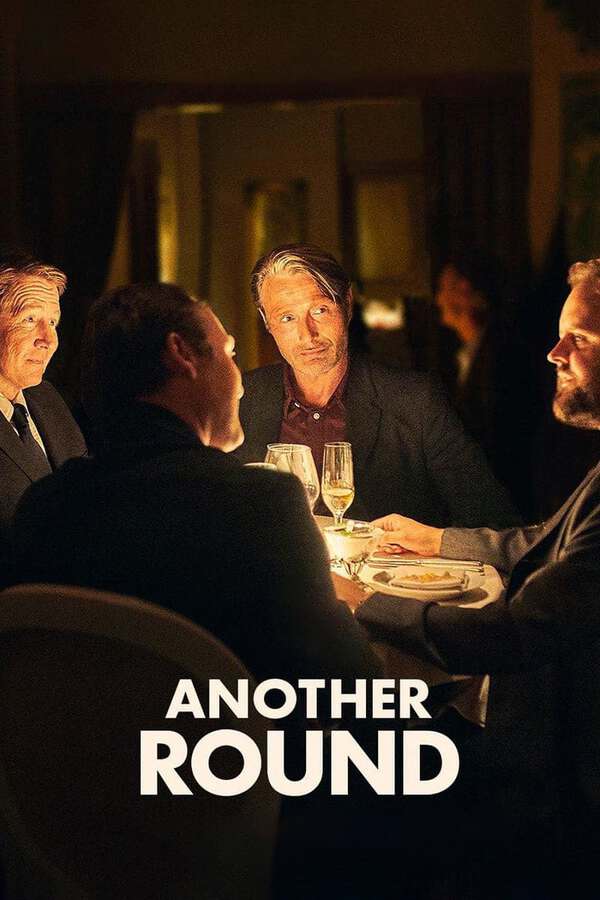
Mads Mikkelsen dancing at the end of the film transported me to a different plane of euphoria. I have never felt so many things at once in my life. He’s dancing for his friend. He wanted him to dance again, and he is in part honouring him. He’s also honouring his spirit. Choosing liberation. Instead of the stagnation he began the movie with. Batshit nuts.
Those feelings I'm feeling... I think the reason the end scene works so well is that proleptic clues are dropped during the whole film; there is a constant teasing effect when characters keep asking Mads to dance, but he refuses. His grieving, combined with his love life reigniting and the joy of seeing his students let loose, pushes him to dance as this music soars. What a life!
It does criticise youth binge drinking. But it doesn’t shy away from also displaying its positive qualities, too. There’s always a yin to the yang. That’s why the film is so good. It balances. It isn’t preachy, leaving a couple of my more puritanical friends with a bad taste. It shows consequences, both good and bad.
The good. The guys begin to deal with their depression,
The bad. One of them cannot handle his depression, especially after losing his job, which helped ground him in his life with no woman.
I would contend the movie is truly more about connection. And Mad's character was yearning for it. And by using alcohol, he’s able to unlock a path towards it. Now, whether they go back to binge drinking, light drinking, or abstinence? Who knows. But I think in the end, they find balance. A level of peace.
]]>
So it's a total blast! The music? Catchy! Jack Black? An absolute force of chaotic good. The kids? Adorable little rockstars in the making. It’s fun and energetic.
Buuuut, if we’re putting our responsible adult hats on for a sec… let’s just unpack this. A man literally steals his roommate’s identity, walks into a fancy prep school, and becomes a substitute teacher with zero qualifications, and no one checks? No background check? No ID verification?
And what does he do once he’s in? Oh, just completely tosses the curriculum out the window and turns the classroom into his personal band rehearsal studio. Meanwhile, the parents are probably thinking their kids are being molded into getting education, not jamming to Led Zeppelin in a supply closet.
Sure, I get the message. “Let kids be kids,” “nurture creativity,” “don’t crush their spirit with rigid systems.” I’m all for that! There’s definitely something beautiful about giving children the space to express themselves and discover new talents. But maybe just maybe we could find a way to do that without hiring a total stranger who lied his way into the job?
That said, it’s a movie. A feel-good, toe-tapping, laugh-out-loud kind of film. It doesn’t have to make perfect sense, and that’s part of the charm.
]]>
I only know about Matilda today, but I would defend this child with all my life PROTECT MATILDA AT ALL COST
]]>
animation was good but i could not care less about the plot
]]>
Kilgore represents the worst aspects of the Vietnam war. He acts like war is a party, and it's a jolly time being with him. He's not a bad guy, but his philosophy is pure bravado in the face of nightmarish shit. But you like him for that. He's hilarious, and his battle scenes are the typical popcorn stuff you love to see.
Kurtz is far less fun. He's the harsh reality. The guy that will do anything to end the war as quickly as possible. Not just fight it, but make it end. And Kurtz sees the leadership as hypocrites for seeing his methods as cruel, when the army at large was bombing civilians left and right.
"We train young men to drop fire on people, but their commanders won' t allow them to write 'fuck' on their airplanes because it's obscene!" This line was so poignant. They strive to clean up the image of war in all manner of inconsequential ways to make it palatable to themselves and the people back home in an effort to gloss over the one thing that should make it the most distasteful - the one that can't be cleaned up - the killing.
]]>
Watching the entirety of Adventure Time so I can feel something. It's free therapy.
]]>
a lot of sht happened to this silly lil robot in a short amount of time lol
]]>
"to be loved is to be changed", but to love is to change; it's to carve a hole in my heart with the shape of you and know that I'm more complete with it. It's to give without expectations because what you make bloom in me is already enough
]]>
so unserious and silly
]]>
Craig's ability to portray someone so pathetically desperate for connection and emotionally clingy was a revelation. Drew Starkey arguably had the more challenging role, imo, as Allerton is very much an enigma for most of the film, as we, like Craig's character William Lee, are trying to gauge what Allerton's motivation and thought process is. Starkey had to walk that tightrope of playing someone who is keeping their cards very close to the chest while also making them engaging to the audience, but his mannerisms and his physicality were so well acted, I thought he was so beautiful. I was extremely interested in the relationship between him and the woman he plays chess with. I think he’s queer personally but Lee's intensity scares him lol.
The yage scene... the scene where they’re Intertwined, a film has never spoken to me more. I think overall, this film just does a really good job of showing the deep longing some people crave, and that really spoke to me in the deepest part of my soul.
I think Luca dug in and found a lot of tenderness in what could at times be a acerbic, self loathing kind of book too (in the way, reminds me of the Priest in Fleabag's Love is Awful speech) but he found the parts of the character and the writer that were tender and longing and made that the heart of the film. He treated it like a proper love story. Loving something enough to deep dive into it and read your meanings from it and elevate - I think that’s the best kind of adaptation, and I think Luca's adaptation was wonderful. Specially because it brings in the heart of Burroughs, his personality, what Luca referred to as 'a bridge' (with the Beats but also Nirvana), the unsaid backstory of Joan Volmer (with the shooting the glass shots), and his son.
]]>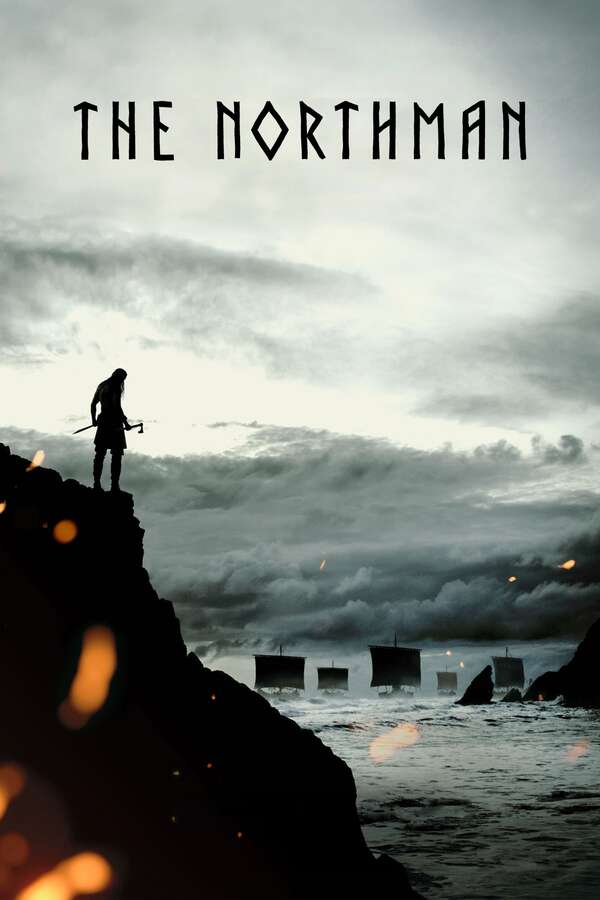
What I love about Eggers' work isn't just how he captures the look of historical times, but the mindset. People didn't just talk and dress differently back then, they THOUGHT differently. Their values and morals weren't just different, but utterly alien to anything we'd recognize today. People inhabited smaller, more dangerous, and incomprehensible worlds than the ones we inhabit today. Things that we explain with modern science were back then rationalized as the work of spirits and gods that were temperamental and lurking behind everything.
And that's exactly what makes Eggers' works great. He walks the thin lines between historical drama, character study, documentary fiction about group dynamics, psychological thriller, surrealist film about mythological symbolism, and supernatural horror flick with such panache that he creates his own niche genre. And every film he has made with this approach has an interesting story to tell in its very own style. That's so refreshingly creative, stylistically innovative, and narratively unique, and at the same time, he shows how these classic tales can still speak to us today.
He has done his historical research well and understands constants of the human psyche just as well as the confinements of time, place, social imprints and psychological nurture, peer pressure and ideological/mythological bonds upon an individual's mindset, the effects of the natural, cultural and technological surroundings on social norms and the environmental effects of both shared world knowledge and secretive/exclusive in-group rituals/techniques on group behavioural dynamics. In short, Robert Eggers' films are like a translation of a past zeitgeist into a present age cinematic art aesthetic.
]]>
cillian and lucy in a rom-com movie?! ofc it's bound to be good!!! lucy's character made me realize I'm not being silly enough
]]>
“I've never loved anyone but you. You were my great, consuming love.”
Don’t mind me. I will stare at the ceiling of my room for a few hours to process this.
]]>
𝑯𝒐𝒘 𝒄𝒂𝒏 𝒚𝒐𝒖 𝒏𝒐𝒕 𝒃𝒆 𝒓𝒐𝒎𝒂𝒏𝒕𝒊𝒄 𝒂𝒃𝒐𝒖𝒕 𝒃𝒂𝒔𝒆𝒃𝒂𝒍𝒍?
As someone who knows absolutely nothing about Baseball, I went into this film with an open mind.
And wow... I was absolutely blown away. This film isn't really about Baseball—I mean, it is to an extent—but it is a broader commentary on the brutal and unforgiving nature of business, redemption, regret, self-worth, systematic change, and family. Baseball is simply the medium by which these things are explored.
This isn't that fake motivational corporate bs that tells you to work harder and all your problems will magically be solved. It's a more grounded, realistic motivation that tells you not to work harder but smarter. It's not just trying to make some massive statement about humanity, but a smaller, more poignant one. A smaller truth about what it actually takes to change the world: and because it's smaller, it resonates more beyond the initial romanticism of getting a group of misfits to all do as well as they did.
This film is a reminder that the tedious and the mundane are the real keys to solving the problems around you, to making a difference. Real hard work is not sexy and not romantic, but whatever it is you're doing right now, if you keep working smart, one of these days you might find yourself in a really transcendent moment, a moment you'll for the rest of your life.
The systems that we have on our planet are not perfect. But changing those systems into something better is really tough to do, and if you're gonna change the world, you're gonna get beat up along the way. So if you're working on something significant, you don't need credit, you don't need adoration or attention for it. You just need to surround yourself with the people who challenge you and you. And working towards your goal, no matter how impossible or idealistic it is, can really help give your life meaning.
]]>
This is the first time I’ve genuinely struggled with rating a film. Like, I know a lot of the choices were intentional, but some things still felt totally random. The filmmaking tho? Absolutely insane—in the best way. Visually stunning, top-tier acting, and the sound design? Anxiety-inducing. But the way everything’s presented left me feeling super conflicted. I can't even tell if I actually liked it or not. It’s somewhere between “fine” and “dire,” and my brain's just doing somersaults trying to process it.
It’s definitely a unique film. I think it’s a psychological, allegorical, maybe religious horror?? Feels like it’s rooted in the Bible??? But how do you even begin to interpret that without losing your grip on reality? I’m stressed just writing about it.
I think I liked it...? I dunno. It’s definitely not Aronofsky’s best, but it’s still good. I probably need therapy after watching it. But yeah, what a unique film.
]]>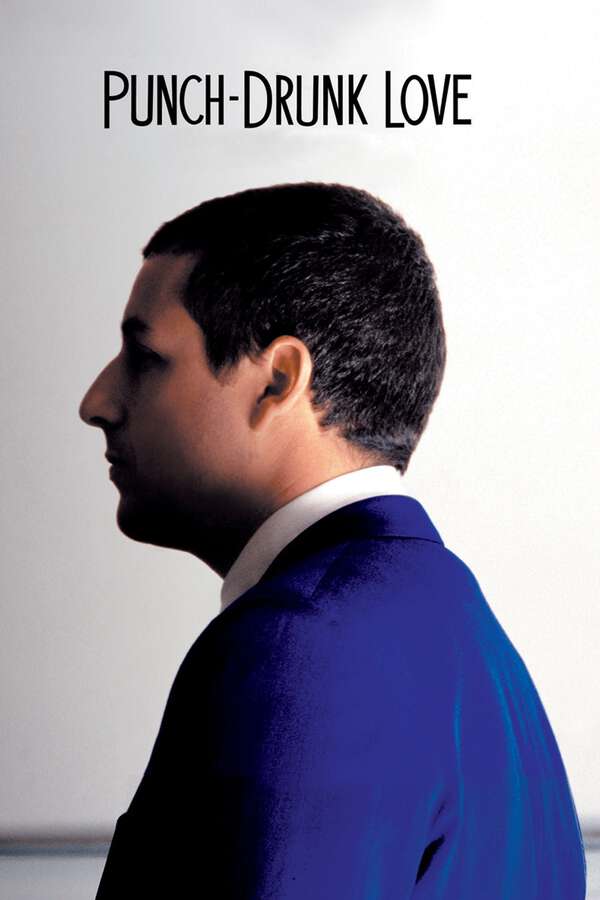
“I have a love in my life. It makes me stronger than anything else you can imagine”
]]>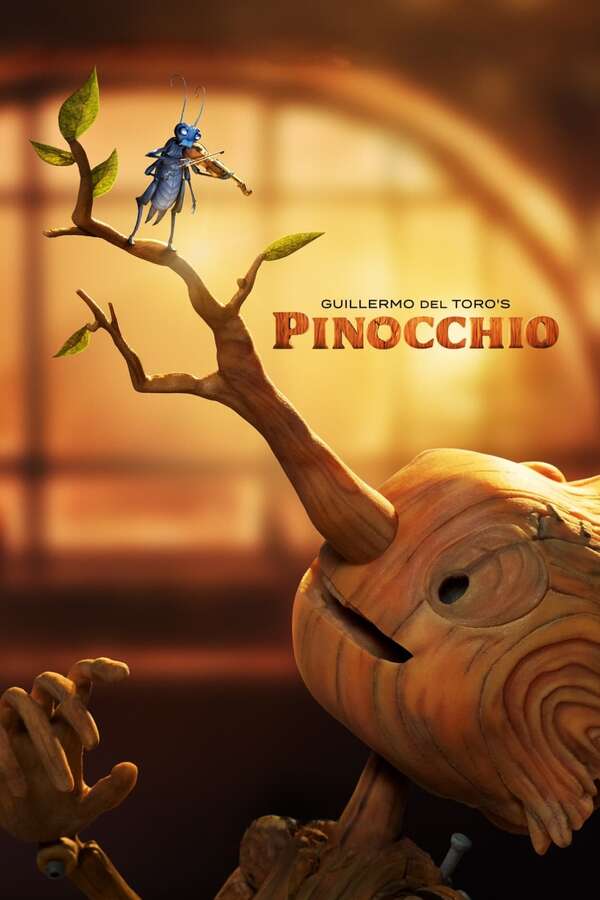
this pinocchio is so diva
]]>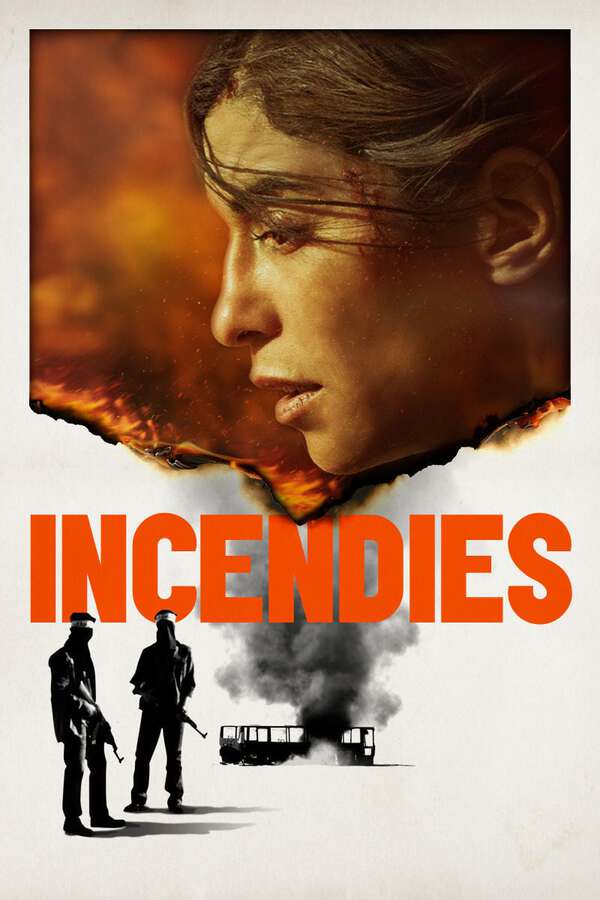
THE GASP I GUSPED
Art is meant to make you feel something. Incendies made me feel everything. Grief, shock, awe, every emotion tangled in a story so devastating yet so beautifully told. A film that doesn’t just leave an impact, it lingers, it haunts, and demands to be felt.
Nawal went through so much terrible stuff throughout her life, and when she thought it was over, life threw one last fatal blow at her. That LOOK at the swimming pool towards the end was so heartbreakingly terrifying. Nawal's reality crumbled, and she completely self-destructed in that moment.
I'm just floored. My gut dropped out. It's such a powerful film.
]]>
movie so pensive it left a void in my heart...
PRODUCED, WRITTEN, AND DIRECTED BY WONG KAR WAI AT THE END CREDITS AS IF I'M GENUINELY SURPRISED
I’m just genuinely concerned, is Wong Kar-Wai okay??? How could he understand and portray such intense longing and yearning in his films smh
]]>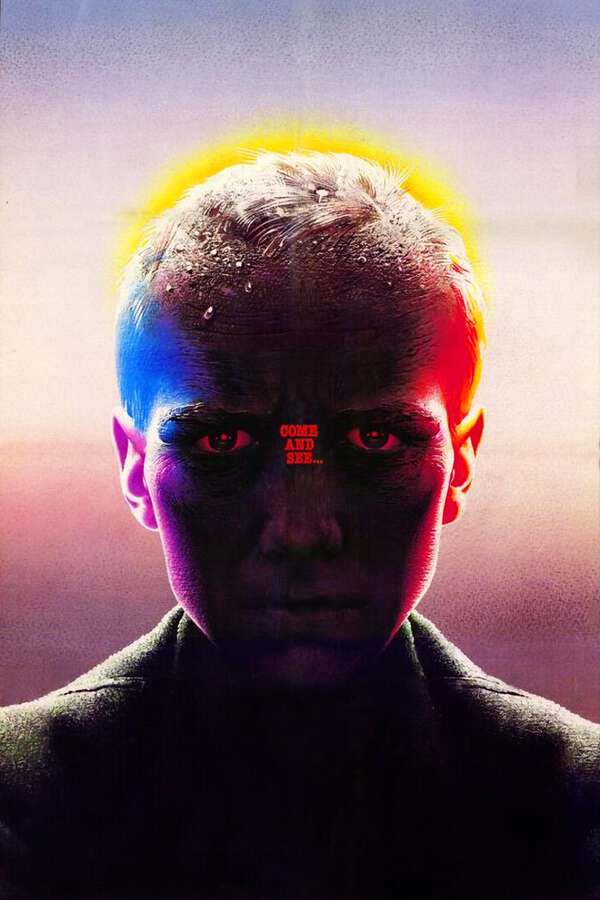
𝑳𝒂𝒄𝒓𝒊𝒎𝒐𝒔𝒂.
It is a beautiful sounding word with a somber and sorrowful meaning, a word meaning weeping or tearful.
𝑫𝒊𝒆𝒔 𝑰𝒍𝒍𝒂.
Interconnected with tearful, it literally means "days". Mostly it is associated with Dies Irae, Dies Illa; which is, that day of wrath. A day, or rather, days and nearly endless years of burning wrath.
𝑸𝒖𝒂 𝑹𝒆𝒔𝒖𝒓𝒈𝒆𝒕 𝑬𝒙 𝑭𝒂𝒗𝒊𝒍𝒍𝒂.
Rise from the ashes. A hope for a new generation after scouring the burnt remains of a civilization ruined by fascism and inhumanity.
𝑱𝒖𝒅𝒊𝒄𝒂𝒏𝒅𝒖𝒔 𝑯𝒐𝒎𝒐𝒓𝒆𝒖𝒔.
To be judged. All the blinded are judged by their involvement on the inhumane. A test on the cruelties and wickedness of the human condition. How far can we take wrath go?
The haunting strains of Mozart’s 𝑳𝒂𝒄𝒓𝒊𝒎𝒐𝒔𝒂 mark the final chapter of the film—a sorrowful requiem for a world lost to tyranny and devastation. Its lyrics, ghostly and reverent, encapsulate a time when civilization crumbled under the weight of brutality and war. From the smoldering ruins of that desolate era, hope stirs, fragile but unyielding.
We must never forget those years steeped in violence and moral decay—the closest humanity has ever come to true hell. Gratitude for not living through that era feels hollow when imagining oneself trapped in that nightmare, surrounded by bloodshed, fascism, and a hatred so consuming it left no room for heroes. Only villains reigned, their minds shackled by militaristic delusions.
What’s most harrowing is not just that it happened, but that echoes of that darkness are unfolding again—before our very eyes. Israel’s occupation of Palestine mirrors the horrors of the past in disturbing ways. A nation, once a symbol of resilience, has now become what it once abhorred. And what's worse, people blindly cheer for its actions, ignoring the ethical collapse unraveling before them. It's nauseating. We’ve clearly learned nothing from history, and so, it seems, we’re doomed to repeat it—modern genocide playing out like déjà vu, draped in the flag of nationalism.
And what can we do? Besides boycotts and words, what real power do we have against systems fortified by manipulation, fear, and apathy? We raise our voices into a dark sea, praying they’ll spark light in minds clouded by propaganda and silence.
This film was more than art—it was a mirror. A reminder. A warning. Of what humanity once was at its worst… and what it could yet become again. And with the morally bankrupt steering the ship and bystanders filling the streets, hope feels distant. Is empathy dying? Is apathy the new plague?
This is my favorite film for a few reasons. It is hyperrealistic, its subjectivity is borderline hypnotic, it is historically accurate, and it does not shy away from unpleasant details, unlike many war films. This film jolted me back and forth between serene composure and chaotic violence, leaving me shaken. It is one of those films that changed how I felt for the rest of the day, as if I had experienced an entirely new emotion for the first time.
]]>
Easily one of the best I’ve seen—and also one of the most uncomfortable and emotionally heavy. It grabs you by the gut and doesn’t let go. You know that feeling when you're watching or reading something and think, “If they just said this one thing, it would fix everything!” This film didn’t give you that. It’s one of those rare stories where there’s no easy fix, no magic sentence to undo the damage. And that just makes the whole thing so much more frustrating—in the most brilliant, devastating way possible.
The issue at the center is so twisted and complicated that I constantly tried to think of some way out of it, some solution that could make it better. But the longer I sat with it, the more I realized—there was none. That helplessness hits hard.
What makes this film even more powerful is how it handles its characters. You know he’s innocent—but still, you can understand why each person reacts the way they do. No one feels like a villain, and that’s what makes it so real. There are no easy people to hate, just a bunch of flawed humans caught in an impossible situation.
It’s a masterclass in honesty and gritty realism—showing how one small lie can spiral into something absolutely catastrophic. And by the end, you’re left asking yourself the obvious, uncomfortable question: What would I do? Which side would I believe? And then that final sequence hits—and it’s crystal clear that no matter what, Lucas will never be truly free. The lie, no matter how false, has already woven itself into his story. He’s forever marked by it.
It’s heartbreaking. It’s frustrating. And it’s undeniably brilliant.
]]>
𝑰𝒏 𝒕𝒉𝒆 𝒆𝒏𝒅, 𝒏𝒐𝒕𝒉𝒊𝒏𝒈 𝒘𝒊𝒍𝒍 𝒄𝒉𝒂𝒏𝒈𝒆.
𝑰𝒏 𝒕𝒉𝒆 𝒆𝒏𝒅, 𝒘𝒉𝒂𝒕 𝒘𝒆 𝒅𝒊𝒅 𝒘𝒂𝒔 𝒎𝒆𝒂𝒏𝒊𝒏𝒈𝒍𝒆𝒔𝒔.
𝑰𝒇 𝒚𝒐𝒖 𝒘𝒆𝒓𝒆 𝒉𝒐𝒑𝒊𝒏𝒈 𝒕𝒐 𝒔𝒆𝒆 𝒂 𝒃𝒆𝒂𝒖𝒕𝒊𝒇𝒖𝒍 𝒈𝒐𝒍𝒅𝒇𝒊𝒔𝒉, 𝑰'𝒎 𝒔𝒐𝒓𝒓𝒚.
People who saw the news about the incident where goldfish were put into a swimming pool might come up with all sorts of reasons for it, but in the end, there probably wasn’t any deep meaning behind it. This can be said about “being alive” too. We spend so much time thinking about the meaning of life, but maybe, in the end, there isn’t any big meaning to it.
Even if there wasn’t any meaning if we can look back someday and say we were pretty happy, isn’t that good enough? That’s the kind of message I selfishly took from it.
]]>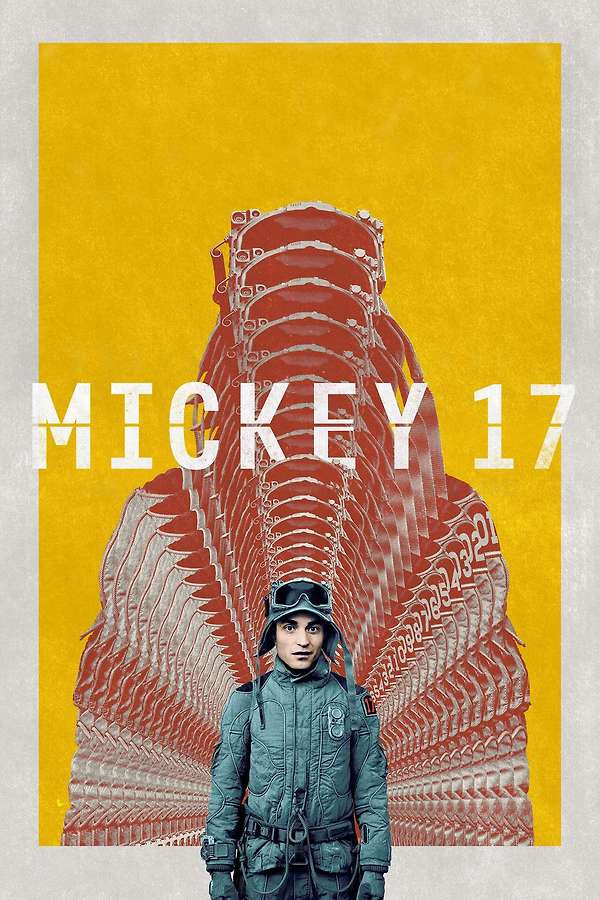
ANOTHER BONG HIT!
I should know better having watched the majority of Bong Joon-Ho's full features, but at this scale and budget, I did not expect Mickey-17 to be as impressionist/distinct in style as it turned out to be. It's still very much a social realist film and part of bringing a singular perspective (Mickey's) to such grandiose concepts (false consciousness, elitism, capitalism, colonialism, wildlife trafficking, etc) is it becomes "a lot". I loved the journey and am always grateful when a film does its own thing. The most unhinged Bong Joon Ho has been... possibly ever!
Also, the ending nightmare sequence was great, very Lynchian. The only thought that came to mind was "There's always gonna be more of them".
It may not land as much as Parasite did, but we still needed it.
]]>
This show left me in ruins—in the most tender, beautiful way. It didn’t just make me cry; it unraveled something deep within me. Each episode felt like a quiet storm, carving out the bitter, the tender, and the fleeting sweetness of life. It doesn’t shout or dramatize—it simply is. A story not about heroes or fame, but about the simple, aching beauty of ordinary lives. Of being born, growing up, loving deeply, and letting go.
This drama is more than just fiction to me—it became a balm for wounds I didn’t know still stung. It melted down years of anger, resentment, and childhood pain I thought I had already buried. It didn’t just tell a story. It healed something. And for the first time in a long while, it made me want to live—not just exist, but truly live—even with the heaviness it left lingering in my chest. Like waking up from a beautiful dream you didn’t want to end.
It speaks softly but powerfully to the child in us—the one still seeking comfort and understanding. Through its quiet narrative, it teaches that even in the most mundane of lives, there is poetry. That the lives of nameless people—those not celebrated or seen—can still be full of wonder and meaning when shared with the right hearts.
It aches with the sorrow of losing—a parent, a child, a partner, a dream. But it also gently reminds us that 𝘱𝘦𝘰𝘱𝘭𝘦 𝘸𝘪𝘭𝘭 𝘤𝘰𝘯𝘵𝘪𝘯𝘶𝘦 𝘵𝘰 𝘭𝘦𝘢𝘷𝘦 𝘣𝘶𝘵 𝘯𝘰 𝘰𝘯𝘦 𝘸𝘪𝘭𝘭 𝘤𝘰𝘮𝘦. However, 𝘸𝘩𝘦𝘯 𝘰𝘯𝘦 𝘥𝘰𝘰𝘳 𝘤𝘭𝘰𝘴𝘦𝘴, 𝘢𝘯𝘰𝘵𝘩𝘦𝘳 𝘥𝘰𝘰𝘳 𝘸𝘪𝘭𝘭 𝘰𝘱𝘦𝘯 and no matter how much people feel the loss, 𝘭𝘪𝘧𝘦 𝘸𝘪𝘭𝘭 𝘨𝘰 𝘰𝘯 𝘧𝘰𝘳 𝘵𝘩𝘰𝘴𝘦 𝘸𝘩𝘰 𝘭𝘪𝘷𝘦. 𝘛𝘩𝘦 𝘧𝘶𝘵𝘶𝘳𝘦 𝘪𝘴 𝘴𝘰𝘮𝘦𝘵𝘩𝘪𝘯𝘨 𝘯𝘰 𝘰𝘯𝘦 𝘤𝘢𝘯 𝘬𝘯𝘰𝘸 𝘶𝘯𝘵𝘪𝘭 𝘸𝘦 𝘭𝘪𝘷𝘦 𝘪𝘯 𝘪𝘵.
No parent wishes their child to suffer the same poverty they endured. Parents stretch themselves thin trying to give more, while children, once deprived, grow up chasing the things they couldn’t have. All their lives, 𝘱𝘢𝘳𝘦𝘯𝘵𝘴 𝘵𝘩𝘪𝘯𝘬 𝘢𝘣𝘰𝘶𝘵 𝘸𝘩𝘢𝘵 𝘵𝘩𝘦𝘺 𝘤𝘢𝘯’𝘵 𝘨𝘪𝘷𝘦, 𝘢𝘯𝘥 𝘤𝘩𝘪𝘭𝘥𝘳𝘦𝘯 𝘵𝘩𝘪𝘯𝘬 𝘢𝘣𝘰𝘶𝘵 𝘸𝘩𝘢𝘵 𝘵𝘩𝘦𝘺 𝘤𝘢𝘯’𝘵 𝘨𝘦𝘵. 𝘈 𝘧𝘢𝘪𝘭𝘦𝘥 𝘮𝘰𝘮, 𝘱𝘢𝘴𝘴𝘦𝘴 𝘰𝘯 𝘩𝘦𝘳 𝘥𝘳𝘦𝘢𝘮𝘴 𝘵𝘰 𝘩𝘦𝘳 𝘤𝘩𝘪𝘭𝘥. 𝘞𝘩𝘦𝘯 𝘩𝘦𝘳 𝘤𝘩𝘪𝘭𝘥 𝘴𝘰𝘢𝘳𝘴, 𝘪𝘵 𝘧𝘦𝘦𝘭𝘴 𝘢𝘴 𝘵𝘩𝘰𝘶𝘨𝘩 𝘵𝘩𝘦 𝘮𝘰𝘵𝘩𝘦𝘳 𝘪𝘴 𝘧𝘭𝘺𝘪𝘯𝘨 𝘵𝘰𝘰.
It also uncovers a cruel irony—that we reserve our worst tempers for those who love us most. We hold back in front of others but unleash storms on our parents, believing they'll always be there. But time is not kind. The fathers we saw as giants become fragile. The mothers who once held us upright start to wither, petal by petal. And only then do we begin to ask: what have we given back to those who gave us everything?
Someday, the roles will reverse, and we will become caretakers to the very people who raised us. We’ll miss our mothers most when we become mothers ourselves. And we’ll understand our fathers more when they are no longer there. I had a father who loved me deeply, but I wasn’t always a daughter who knew how to return that love. Now, I see his silent sacrifices—waking early so we could sleep longer, living for us without asking for thanks. Now, for the first time, he no longer has to rise before dawn. His endless, uneven love has ended. Mine has just begun.
This show tells the story of three generations of women—bound by blood, by love, by resilience. The title becomes a metaphor for the unexpected offerings life throws our way: the joys and the heartbreaks, the sweetness of connection, and the sourness of loss. All of it—the good and the painful—shapes who we are.
And maybe, in the end, that’s the truest wisdom the drama gives us:
𝑾𝒉𝒂𝒕𝒆𝒗𝒆𝒓 𝒓𝒐𝒂𝒅 𝒚𝒐𝒖 𝒘𝒂𝒍𝒌, 𝒍𝒊𝒇𝒆 𝒘𝒊𝒍𝒍 𝒃𝒆 𝒉𝒂𝒓𝒅.
𝑺𝒐 𝒄𝒉𝒐𝒐𝒔𝒆 𝒔𝒐𝒎𝒆𝒐𝒏𝒆 𝒚𝒐𝒖 𝒘𝒂𝒏𝒕 𝒕𝒐 𝒇𝒂𝒄𝒆 𝒕𝒉𝒆 𝒎𝒐𝒓𝒏𝒊𝒏𝒈𝒔 𝒘𝒊𝒕𝒉.
𝑩𝒆𝒄𝒂𝒖𝒔𝒆 𝒘𝒉𝒆𝒏 𝒍𝒊𝒇𝒆 𝒈𝒊𝒗𝒆𝒔 𝒚𝒐𝒖 𝒕𝒂𝒏𝒈𝒆𝒓𝒊𝒏𝒆𝒔,
𝒀𝒐𝒖’𝒍𝒍 𝒘𝒂𝒏𝒕 𝒔𝒐𝒎𝒆𝒐𝒏𝒆 𝒕𝒐 𝒕𝒂𝒔𝒕𝒆 𝒃𝒐𝒕𝒉 𝒕𝒉𝒆 𝒃𝒊𝒕𝒕𝒆𝒓 𝒂𝒏𝒅 𝒕𝒉𝒆 𝒔𝒘𝒆𝒆𝒕 𝒘𝒊𝒕𝒉 𝒚𝒐𝒖.
It’s a story about beginnings, about youth, about endings. But more than that—it’s a reminder that every ordinary life is, in its own way, extraordinary.
(04/09/25 - 04/11-25)
]]>
This miniseries hit hard. It wasn’t just a story—it felt like a giant mirror held up to some of the ugliest parts of our current society. The way it tackled incel culture and the deep, deep roots of misogyny? Devastating. And the scariest part? None of it felt far-fetched. Everything that unfolded on screen felt like something that could happen… or already has. That’s what makes it so unsettling.
We live in a time where more and more people feel oddly comfortable voicing some of the most disturbing, hateful takes on women—as if basic human decency is now up for debate. You see it online all the time—comments, threads, entire communities festering with resentment and entitlement. And instead of shutting it down, or calling it out loudly and collectively, we’re... debating them? Entertaining them? Giving platforms to these voices like it’s a normal “difference of opinion.” It’s not. It never was.
And I keep thinking—we should’ve done better. We should’ve drawn the line harder, earlier. Because now we’re here, watching these toxic ideas morph into real consequences. It’s not just tweets and edgy jokes anymore. It’s violence. It’s isolation. It’s young men spiraling down rabbit holes because no one taught them how to handle rejection, emotions, or relationships in a healthy way.
It’s frustrating. It's heartbreaking. It’s terrifying. And if we don’t start changing the way we talk, teach, and treat each other, we’re going to keep watching stories like this unfold—not on TV, but in real life.
]]>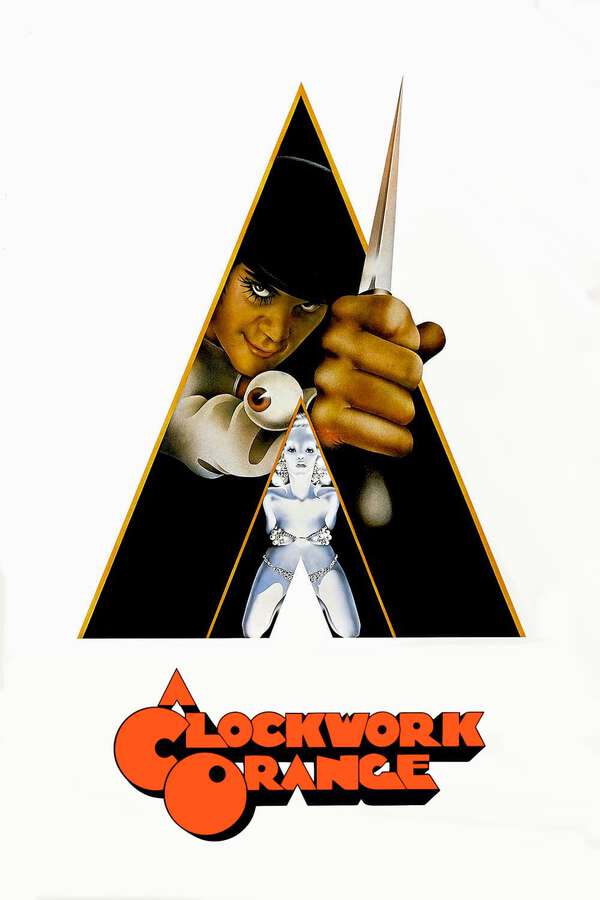
I feel a quote by the author is very much worth sharing here: "By definition, a human being is endowed with free will. He can use this to choose between good and evil. If he can only perform good or only perform evil, then he is a clockwork orange - meaning that he has the appearance of an organism lovely with color and juice but is in fact only a clockwork toy to be wound up by God or the Devil or (since this is increasingly replacing both) the Almighty State" - Anthony Burgess
Nature vs. nurture, free will & morality, the aesthetics & rituals of dogmatic belief systems, social conditioning & engineering, the aesthetics of fascism, and the inhumanity of most justice systems. It's in the title: If it acts like an Orange and looks like an Orange, is it an Orange? The follow-up question is when does the public good become more paramount than individual freedom? All the rest is window dressing for an extreme thought experiment to highlight the question(s). That is what made Kubrick and Burgess geniuses.
"A Clockwork Orange" lays bare, in the starkest way possible, the issues of violence, politics, and free will. It does not answer them. That is the entire point of the movie and the book. It is the most outstanding value of fiction vs. reality. Fiction can be edited to remove distractions. As long as what is left after editing is still a reflection of reality rather than a series of fantastic coincidences, then it becomes great art. The problem is most people are looking for, and expect, resolution and answers. Great Art poses difficult questions and almost never answers them. We are left to contemplate our own answer or lack of one.
I personally kinda like the ending. My interpretation of the film's message is that you can't change people by force and trying to do so takes away something that makes us human. Also, I find it kind of ironic that where Ludovico failed, Alex's free will succeeded. Alex is still an irredeemable monster, but he is a monster of his own free will
]]>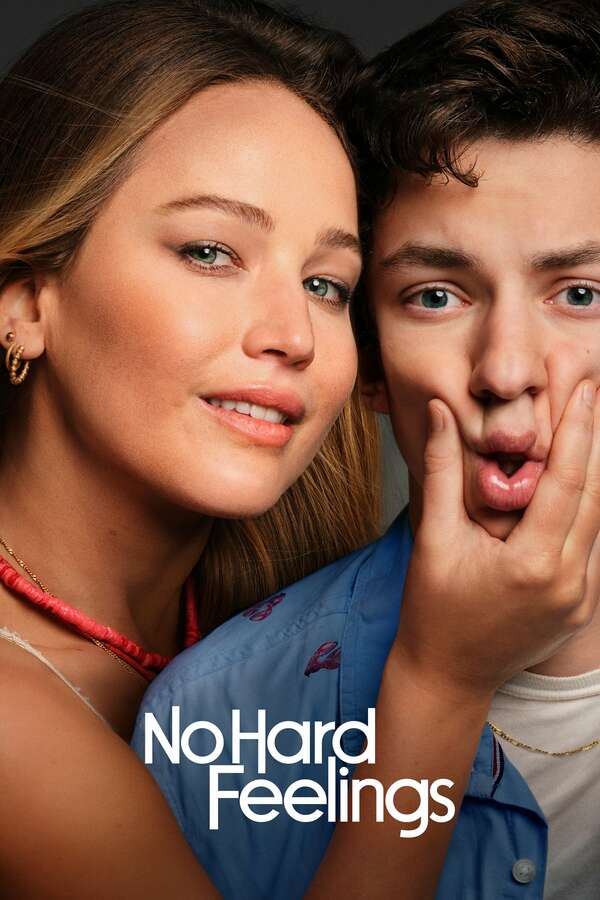
I honestly don’t get how so many people walked away from this thinking the film was trying to normalize predatory behavior. If anything, it’s literally pointing a big neon sign at how wrong the whole situation is.
I'll it, I went into it fully expecting to hate it—the premise sounded creepy as hell. A 33-year-old woman getting paid by the parents to seduce their introverted teenage son? Yeah, red flags everywhere. But then... the movie surprised me. It was actually funny, smart, and way more self-aware than I expected. Beyond the jokes (which landed, by the way), there were some really relevant themes: like how insanely disconnected and anxious younger generations have become, how parents can micromanage the life out of their kids, and how desperate people can get just trying to survive financially.
The part that creeped me out the most wasn’t even Maddie—it was the parents. These two fully grown adults are so controlling and manipulative that their son basically has zero self-confidence left. So what do they do? Hire someone to seduce him without his knowledge or consent, all in the name of "helping him." Like... what?! And even after everything, they’re still clinging to control over his choices. The wildest part? The moral dilemma doesn’t even feel unrealistic. There are plenty of parents out there who pressure their kids into relationships, marriage, life paths—whatever they think is “best.” This film just takes that to the extreme and wraps it in comedy.
In the end, yeah, it was fun. But also kind of harrowing in its own way. Funny with a side of uncomfortable truth.
]]>
This review may contain spoilers.
“𝐷𝑜 𝑛𝑜𝑡 𝑐ℎ𝑎𝑠𝑒 𝑡ℎ𝑒 𝑠𝑢𝑐𝑐𝑒𝑠𝑠, 𝑓𝑜𝑙𝑙𝑜𝑤 𝑡ℎ𝑒 𝑒𝑥𝑐𝑒𝑙𝑙𝑒𝑛𝑐𝑒 𝑎𝑛𝑑 𝑠𝑢𝑐𝑐𝑒𝑠𝑠 𝑤𝑖𝑙𝑙 𝑐ℎ𝑎𝑠𝑒 𝑦𝑜𝑢”.
This film is a very straightforward jab at India’s higher education system. There is a lot in this film that students in India (and not only there) can relate to. It also addresses other very serious issues, like the student suicide rate fueled by all the pressure from studies and parent’s expectations that they are trying to fulfill. While the movie attacks the system, it is very much pro-education. On one hand, we can see it from Rancho’s story. I cannot go into details without revealing spoilers, but it is pretty much self-evident. On the other hand, there is a side story about Millimeter. He is from a poor family background, and cannot afford school, though he wants to get an education. He s himself by running errands for students on campus – doing laundry, ironing, getting groceries, etc. At this point, his future seems to be destined to end something like Govind’s, Professor Viru’s valet, treated in an almost slave-like manner by the professor. This subplot addresses the issue of the caste system and poverty. It shows that through education, people from different backgrounds can be empowered and get themselves and their families out of poverty.
There are ittedly some flaws in the film. The major one for me was that when they found Rancho in Ladakh, five years after they finished their studies, he had not married, nor had any relationship. Seemingly, he had not even kissed before Pia “attacked” him joyfully. The same goes for Pia, but waiting five years seems quite a long time, especially in a more traditional family in India, where “unwed” girls are a “burden” for the family. All characters had pretty clearly defined characteristics of “good” and “bad.” The movie is very categorical about it, though it does work out well in this case.
However, these minor details do not influence the overall impact of the film, and the impact is significant. It’s a wonderful cinematic experience, very well shot, with beautiful colors, amazing landscapes, and a very smooth experience for viewers (movies that use flashbacks often stumble on this aspect).
Acting is great from all main characters, and the emotional connection with the audience is guaranteed. I have to it, I have never cried during a film as much as I did watching this one. It has a very universal appeal, and anyone can find a favorite part or message for them. Especially for those who have not seen any Bollywood films before, it is a good one to start with.
]]>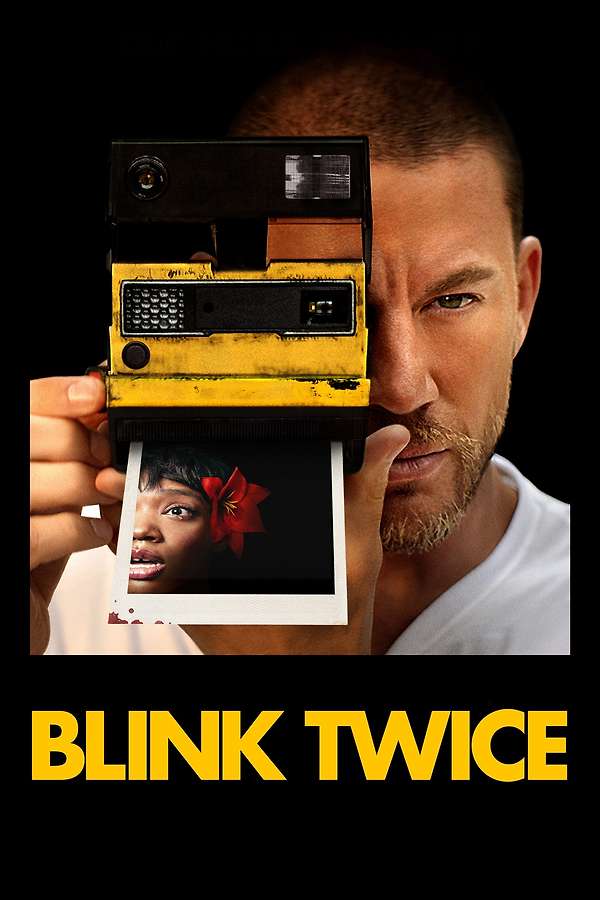
This review may contain spoilers.
okay so phew... I have a lot to say about this film so brace ahead
First of all, this film could have been really interesting if it had been reframed. You don't even have to change the plot that much or at all. It could have been a film about how solidarity between women who are victims often gets traded in to secure a bag or to climb a social ladder, how even women who are victims sometimes can weaponize their victimhood to harm other women (and often themselves). The ending is the same: becoming the enemy is a hollow victory, and the smile at the end would be terrifying rather than "satisfying". I think if there were more visual or audio cues highlighting the ugliness of Frida's decision in the end, it would have been clearer that it's a cynical ending not to be celebrated by the audience. Jess and Lucas were the true tragic figures of the movie - the plot let them down the same way Frida let them down. However, It could also represent how she sees the end of the tunnel through a personal lens, rather than a universal one. She still defeated her circle of abs and antagonists. While she does not expose the truth, she is now in control. This could also represent some of her personality- she knows what she is doing.
Second, maybe I’m part of the minority, but I thought the film implied that Frida was also somewhat of a villain, or I guess not necessarily a hero when she pulls Slater out of the fire rather than the girl. That to me was a jaw-drop moment that revealed her true intentions of selfishness and her betrayal of the other woman. I didn’t walk away feeling like I wanted to root for Frida, nor did I feel like I was led to. It gave the vibe that Frida wanted a challenge and sacrificed her friend and a few other females in the process to gain more power. ESPECIALLY since Slater finally ed at the end when his nose started bleeding. The question is, who is really in control of it wasn’t Slater? I don't know. It’s far-fetched, but the ending scene was giving “She’s also the villain”. The point could be made more obvious by having a few moments in the beginning that really stress the willingness of our protagonist to ladder climb despite morality. We only really see her break rules at work to meet a celebrity, something a lot of people might justify. But if we saw her throw a coworker under the bus or something more universally offensive but mild, it would have laid the better groundwork for her now irresistible and inevitable turn as a villain.
Third, after the credits rolled, I just started feeling that something was off as the film came to an end. I wanted to root for Frida, but couldn’t fully get behind her. What message is the film trying to send its viewers? Should women aspire to financial upward mobility over believing each other, and protecting our closest friendships and strong communal bonds? And who among us is allowed to be put down or sacrificed, vs. who is not? The loss of the protagonist’s best friend is so insidious because, for much of the film, the characters and viewers don’t even realize she’s gone. And after her loss, how is she ed or canonized? How are other women protected, so that the same losses don’t take place for others?
Also, I hadn’t considered Lucas much at all when I was watching it, but I believe he was also a victim, which I think touches on the ultimately damaging aspects of males as they matriculate through patriarchy. It’s striking, how flawed and contradictory the film’s messaging is, but how it also tries to speak for women.
All in all, I think Blink Twice is similar to a lot of other films where people identify the finale as “good for her” when in reality that is not at all what the film was going for. I think that the fact that Slater doesn’t get what he deserves at face value does a disservice to the film and blinds you from seeing that this cycle of abuse, while less intense and horrific, has just been continued in another form with Frida now in control.
]]>
I don't necessarily think that Darjeeling is the formal peak of Anderson's work but I think it's the most human of his films. One bit of the genius of this film is how it manages to satirize the entitlement that leads a bunch of white dudes to search for meaning in a foreign land while also completely taking their pain and desperate search for connection seriously. It's a fine line to balance, and I can see how some might be upset by its cultural appropriation, but I think it deftly explores that complicated dichotomy.
]]>
Raging Bull is Scorsese's most personal work. It marked a full-fledged leap directly into his Catholic cosmology, much more so than his earlier works. It was never intended to be a "boxing film" and it really isn't. It's an exploration of sin and redemption at the most inner, individual level. And, for sure, a dive into the darkest parts of masculinity. It's a journey into the night of the soul. Scorsese himself had gone through a downward spiral in the late 70s. His personal life had unraveled: he had gone through his second divorce and literally found himself in a hospital bed lingering between life and death on of heavy drug use which did not mix well with his chronic asthma.
It was around that time De Niro urged him to revisit the Jake LaMotta story which they had been knocking around for several years. At that point, Scorsese saw that LaMotta's descent into jealousy, rage, and self-abuse could really become an allegory for the salvation struggle.
Those boxing scenes are so penetrating and electrifying not because they raise the tension of "who will win the fight" but because they exemplify a form of atonement called self-flagellation which can be found in many faiths, particularly in Catholicism. The blood on the ropes and the slow-motion of the blood squeezed out of the sponges as they wipe his body - are religious in their symbolism (i.e. the Crucifixion).
But, the deft brilliance of Raging Bull is how it inverts the violence in the ring with the violence outside of it. When Jake ultimately strikes his wife, it resonates more shockingly than the gun-blasting rat-a-tat of a thousand action, crime, or war films. That's how it dares us to look away from the ugliest part of human (male-centered) nature.
It's also his most formally and stylistically audacious film. He punctuates scenes of straightforward realism with slow motion, his trademark quick push-ins, smash cuts, swish-pans, and the like. The sound design is utterly brilliant, and some of the most creative uses of it are found in modern cinema.
So, no, it ain't a boxing film about some violent jerk from the Bronx who tries to win the middleweight title. It transcends that to aspire to a much deeper moral examination. It takes the kitchen sink drama and transforms it into a Greek tragedy.
I think Raging Bull is Scorsese's ultimate auteurist statement. It reveals more about the filmmaker himself than any of his other works. He even ends the film with a Biblical quote that pretty much bears this out.
]]>
This film really brings up some visceral feelings- the tension and suspense surrounding their initial stay in 'room', which is added to by great performances; you genuinely feel as though 'room' is everything to that kid. Then, following that, the drama of: Will they execute their escape? Will the kidnapper be apprehended? And so on.
Then there is the most damning part of the film: the psychological commentary on how difficult it is to mentally readjust to something completely new to you. In some instances, you feel as though the kid might have been happier having stayed in the room, even though that would have been a substantially bigger detriment in his life. I suppose all in all, it chronicles how difficult trying to get your life back actually is, and further how hard readjusting to a new 'normal' is.
]]>
This review may contain spoilers.
"𝒃𝒆𝒊𝒏𝒈 𝒇𝒓𝒂𝒈𝒊𝒍𝒆 𝒊𝒔 𝒂 𝒒𝒖𝒂𝒍𝒊𝒕𝒚"
Do you ever watch a film that just gets you? Like, one that doesn’t have some big dramatic climax or life-altering moment, but instead holds up a mirror and says, “Hey, it’s okay to be fragile sometimes”? This is what the film is all about.
The whole film is basically about fragility, not just the emotional kind, but the kind that makes us human. It follows Az, a charming, seemingly confident oyster farmer who thinks he’s got love all figured out. Spoiler alert: he does not. When his grand romantic gesture completely backfires, he’s left heartbroken, questioning everything, and basically walking around like a lost puppy (and god does he look like a himbo)
And this is where the magic happens because instead of giving us a macho “bounce back” story, the film leans into Az’s vulnerability. It shows that being fragile isn’t a flaw. It’s not something to be ashamed of. It’s a part of growth. His heartbreak doesn’t destroy him; it reshapes him.
What makes the film work so well is how natural and effortless it feels. The characters talk like real people, the emotions hit just right, and the setting (southern , sun-soaked and dreamy) gives everything a quiet warmth. It’s not trying too hard to be profound, but it ends up being exactly that.
So, if you’re in the mood for something gentle yet meaningful, something that reminds you it’s okay to be soft in a world that wants you to be tough, this one’s for you. This film tells us that fragility isn’t weakness; it’s what makes us real. And honestly? We could all use that reminder.
(watched during the 27th French Film Festival)
]]>Films That We're Once Part and Defined My Top 4
]]>I mostly watch movies upon their digital release in my tiny room, so I often miss the opportunity to catch them in theaters but these films deserve to be watched in theaters.
- Suzume
- Monster
- Parasite
- Past Lives
- In the Mood for Love
- Happy Together
- Cinema Paradiso
- Dune
- Dune: Part Two
- Get Out
...plus 4 more. View the full list on Letterboxd.
]]>